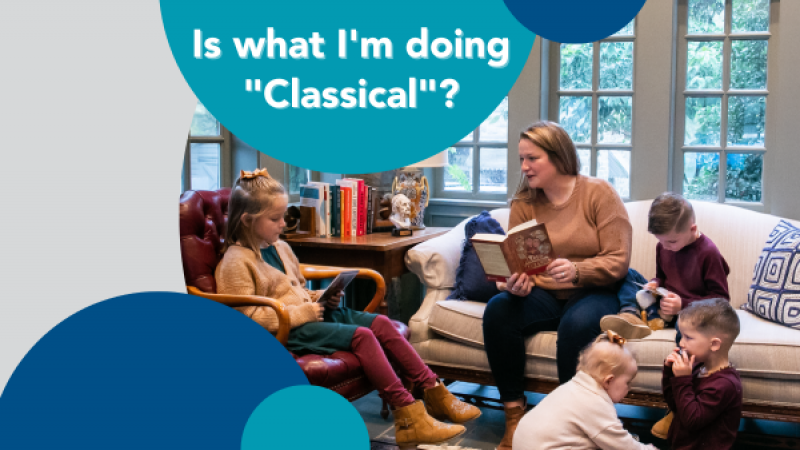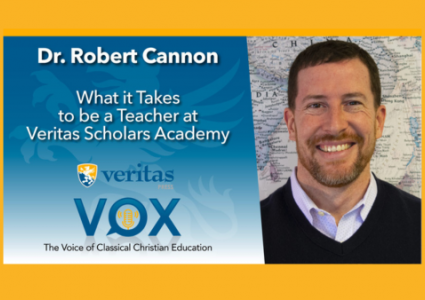Is What I’m Doing “Classical”?

Often, people ask me: “Is what I am doing classical?” In reaction to this question, I try to smile and say, “We are 40 years into a 1,000-year project.” This gives me a wide area of responsibility. Today, I would like to weigh in on a few questions that you might have about how classical your choices are. Here are three issues that some of you might be considering.
Issue 1: How classical do I have to be to be classical?
There is a classical Christian accrediting program for schools with the Association of Classical Christian Schools (ACCS). Here are the ACCS Accreditation Standards. These standards are good to contemplate but are only an excellent fit for some educational venues. They’re fitted for different types of schools. Homeschool families and other forms (Co-ops, Study Centers, Hybrids, etc.) might or might not fit these standards well. They are instructive in that they point to principles and subjects that should be evident in a classical Christian education, but they might not be an excellent fit for the form of education you are using.
If you want to know that you are using a classical curriculum, I would advise that you stick close to curricular choices made by folks with more experience with classical curriculum. While this is a little self-serving because this suggestion involves a curriculum my wife and I created, I don’t think you can do much better than the Veritas Press Catalogue. That doesn’t mean you can’t be classical if you don’t follow Veritas Press’s curriculum. I was around when we, especially Laurie Detweiler, were making choices for Veritas Press. The big difference between Veritas Press and many other classical curricula is that we discussed what students could do historically. If you follow Veritas Press’s choices, you are generally using a classical curriculum.
Issue 2: Does doing a particular curriculum make me classical?
As I mentioned in the last point, the answer is “not necessarily.” You can use the classical curriculum “un-classically.” Imagine this: you have Latin curriculum, Saxon Math (or Singapore Math), Surley Grammar, and the VP Bible and History Cards. Are you classical? Again, not necessarily. You can turn classical Christian education into something not classical and not Christian. You can avoid training students to think or to sing to see proportions or to be able to communicate winsomely. Classical education is not a set of worksheets. It is not just a list of classes. Classical Christian education is a commitment to teaching certain subjects in certain ways to reach certain ends. The ends are clear: faith in Christ and classical training that prepares you for the full range of God’s calling. This means taking Christ and His truth into every corner of the world.
Issue 3: Is classical a method or particular content?
More than a quarter-century ago, I was discussing with others in classical Christian education about what I called the “Methodology-Content Spectrum.” It was the beginning of conversation and debates that continue to this day! Sayers’ essay points out that the classical method can be fitted to how a child develops. This is true (and obviously so if you have been working in classical Christian schools for a while), but it is not the whole story. There is particular content that you should be learning if you are in a classical school. Classical Christian students are prepared for all callings and those receiving a cultural inheritance.
So, get on the classical spectrum. The spectrum involves classical subjects, classical content, and classical ends/methods. Each step you take makes you more classical. Take aim, find what works, and bathe your educational choices in prayer.






